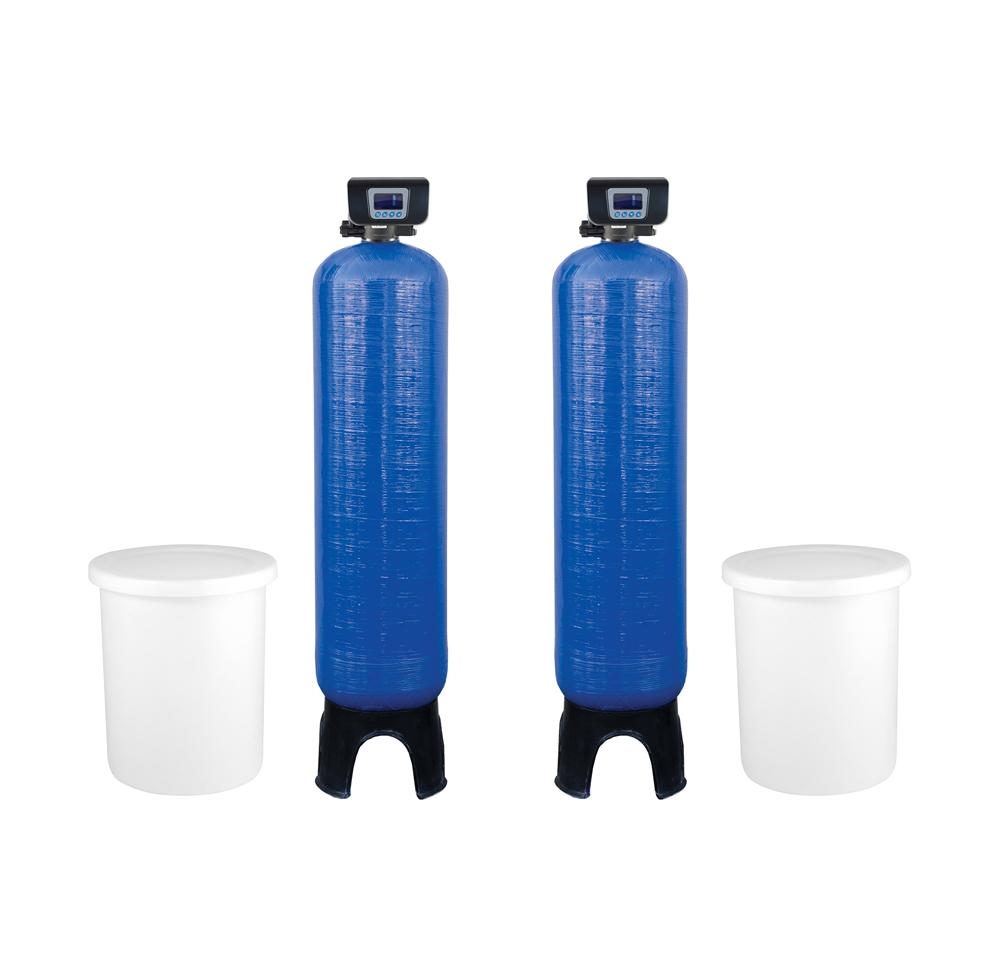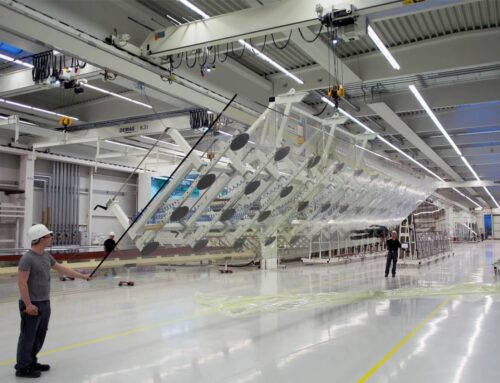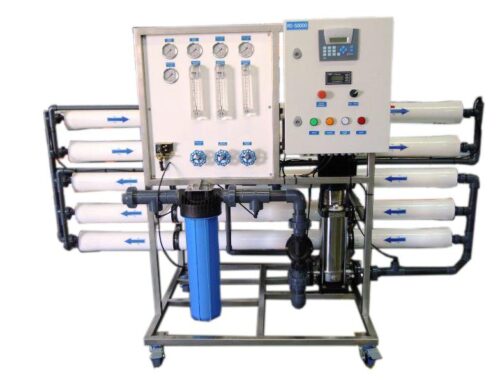The Water Softener - Industrial Applications

Industrial Applications for a Water Softener
The United Kingdom is no stranger to hard water. In fact, nearly 60% of the UK is affected by hard water, which is defined as water that contains high levels of minerals such as calcium and magnesium. While hard water can be a nuisance in a domestic setting, it can be particularly problematic in an industrial setting. This is where an industrial water softener comes in to play.
In this article, we will take a closer look at the numbers surrounding the industrial water softener in the context of the United Kingdom.
What is an Industrial Water Softener?
An industrial water softener is a device that removes minerals from water to prevent scaling and build-up. This scale can typically be found within the pipework or appliances that the water feed is serving. Typically, they are used to extend the lifetime of plumbing by preventing corrosion A water softener is used in a wide range of industries which can all be found on our websites ‘Industries’ drop-down menu.
The industrial water softener uses ion exchange technology. This involves the exchange of calcium and magnesium ions for sodium ions, as well as other metal cations found in hard water. Calcium and magnesium are the main cause of scaling in systems. Majority of industrial water softeners are ion exchange pressure vessels.
The charge of the resin in the softening vessel ultimately acts as a magnet. It causes the calcium and magnesium ions to become trapped on its surface.
When the resin is saturated, water softening vessels then exchange these calcium and magnesium ions for sodium ions. After that, regeneration takes place.
When choosing a water softening system, one of the main considerations is whether a simplex or duplex system is required. In other words, a duplex system allows for one vessel to regenerate whilst the other vessel can be programmed to remain operational. This avoids any prolonged periods of down time.
Recharging a vessel encompasses eluting the wastewater from the ion-exchange column containing the unwanted calcium and magnesium salts. Typically, this wastewater is discharged to the sewage system.
Recharge typically takes the following steps:
Backwash
Water is directed through the resin in the opposite direction as normal flow, and the output is sent to a drain for disposal. This 10-minute process flushes out solids, and expands the resin bed.
Brine draw
Water is directed through a jet pump, which pulls salt water from the brine tank, before the water and brine pass through the resin bed in the normal direction, if co-current, or in the reverse direction, if counter current.
Rinse
Brine draw stops, but water continues to flow from the inlet to the outlet, gradually flushing the brine out of the resin bed. The flushing water flows slowly for several minutes, then at a faster rate for as long as an hour. At some point, the brine reservoir is refilled with fresh water.
Because bore holes and towns mains water supplies harbour these minerals and elements, water softeners are used to remove hardness from the incoming water supply. These ions would otherwise cause scaling within a water system. Scaling can present itself in many ways.
Below is a list of the most common effects of scaling;
- Water heaters scaling impedes on their ability to heat water efficiently.
- Scaling on glassware such as shower screens and glasses is unhygienic and cosmetically unappealing.
- The scaling on tap outlets and scale build up within water holding tanks can have detrimental effects on systems.
The Benefits of an Industrial Water Softener
There are numerous benefits to installing an industrial water softener. For one, they can prevent critical equipment from scaling. Secondly, they can prevent costly downtime and repairs on critical equipment. Thirdly, they are known to increase the lifespan of equipment. Lastly, and most importantly, water softeners improve efficiencies and reduce energy costs.
The Numbers behind the Industrial Water Softener
So, what do the numbers say about industrial water softeners in the UK? According to the Water Quality Association, the UK is the third-largest market for water softeners in Europe. The UK water softener market is expected to grow a further 6% in the next 5 years.
By investing in an industrial water softener, businesses are taking the necessary steps to protect some of their most valuable assets.
Choosing the Right Industrial Water Softener
An investment in an industrial softener for pre-treatment on feed water coupled with a good maintenance schedule is ideal. The specific water requirements and needs from the end use application for the applicable industry must always be considered. Sizing an appropriate system is very much dependent on flow rates, system size and the mineral content of the untreated water.
It is important to choose a reputable supplier who can provide the appropriate guidance and support. Support should never end with installation, as maintenance of the system is critical.
Conclusion
The numbers surrounding industrial water softeners in the UK speaks volumes. With nearly 60% of the UK affected by hard water, the demand for these services is only expected to grow. Ultimately, the benefits of industrial water softeners significantly outweigh the costs of implementation.
By choosing the right installation to fulfil your specific needs, you can ensure the protection, efficiency, and longevity of your most important assets.
Water softening is a standalone solution. However, it is often used a pre-treatment measure for further finer filtration such as reverse osmosis.
Find Out More
Puretech Water Systems (UK) Ltd specialise in water treatment and process filtration. We work across multiple sectors providing water processing solutions.
Interested in finding out more about reverse osmosis systems?
Find more information here: https://puretechsystems.co.uk/what-is-reverse-osmosis/
More Articles
- All
- News




